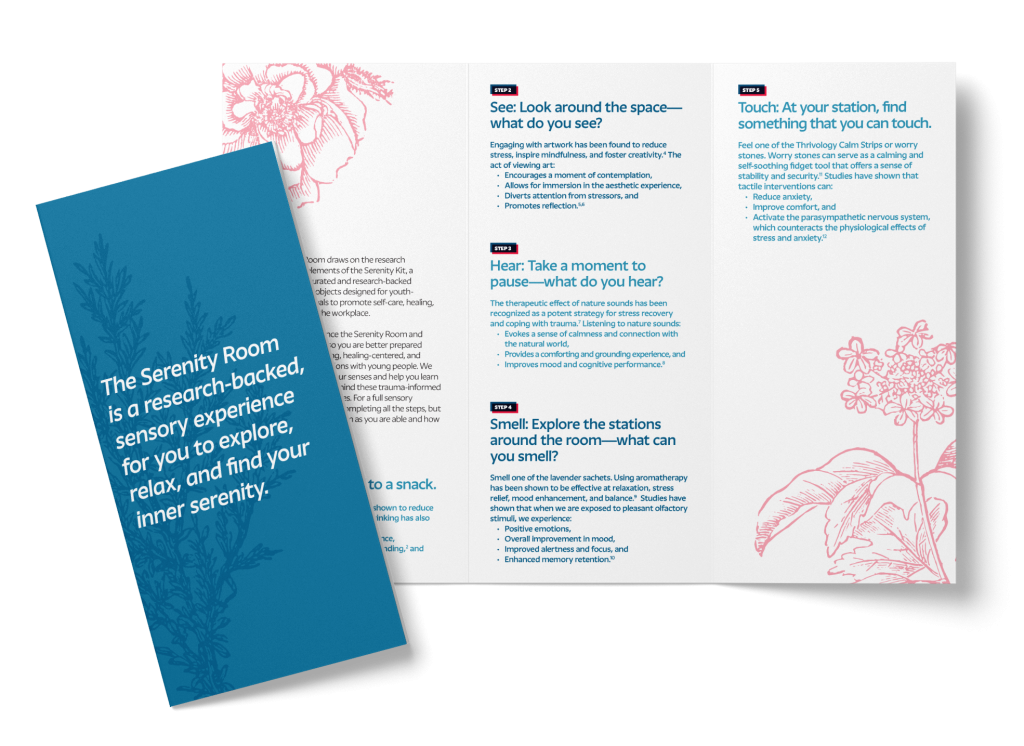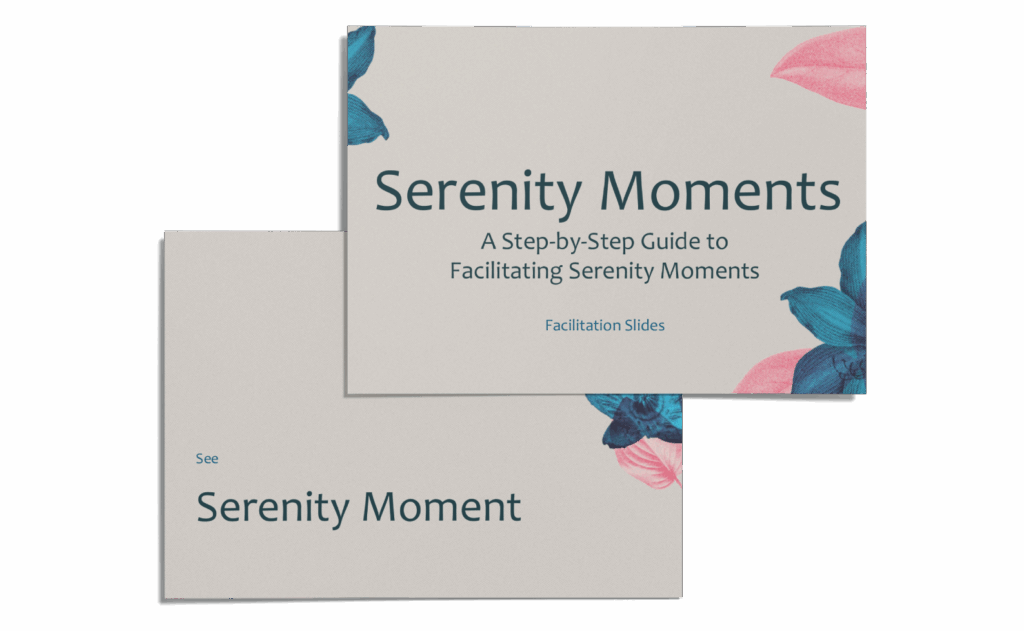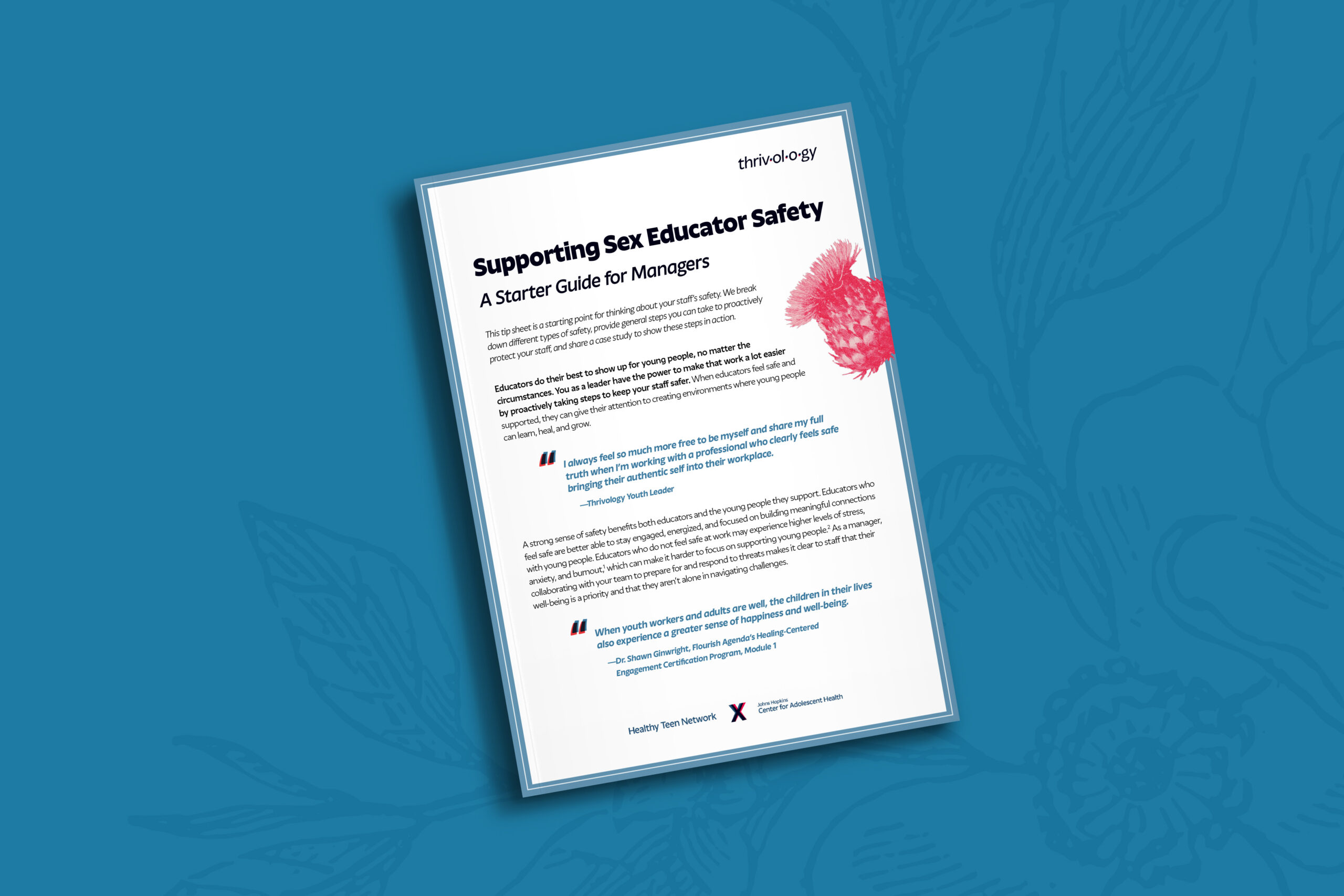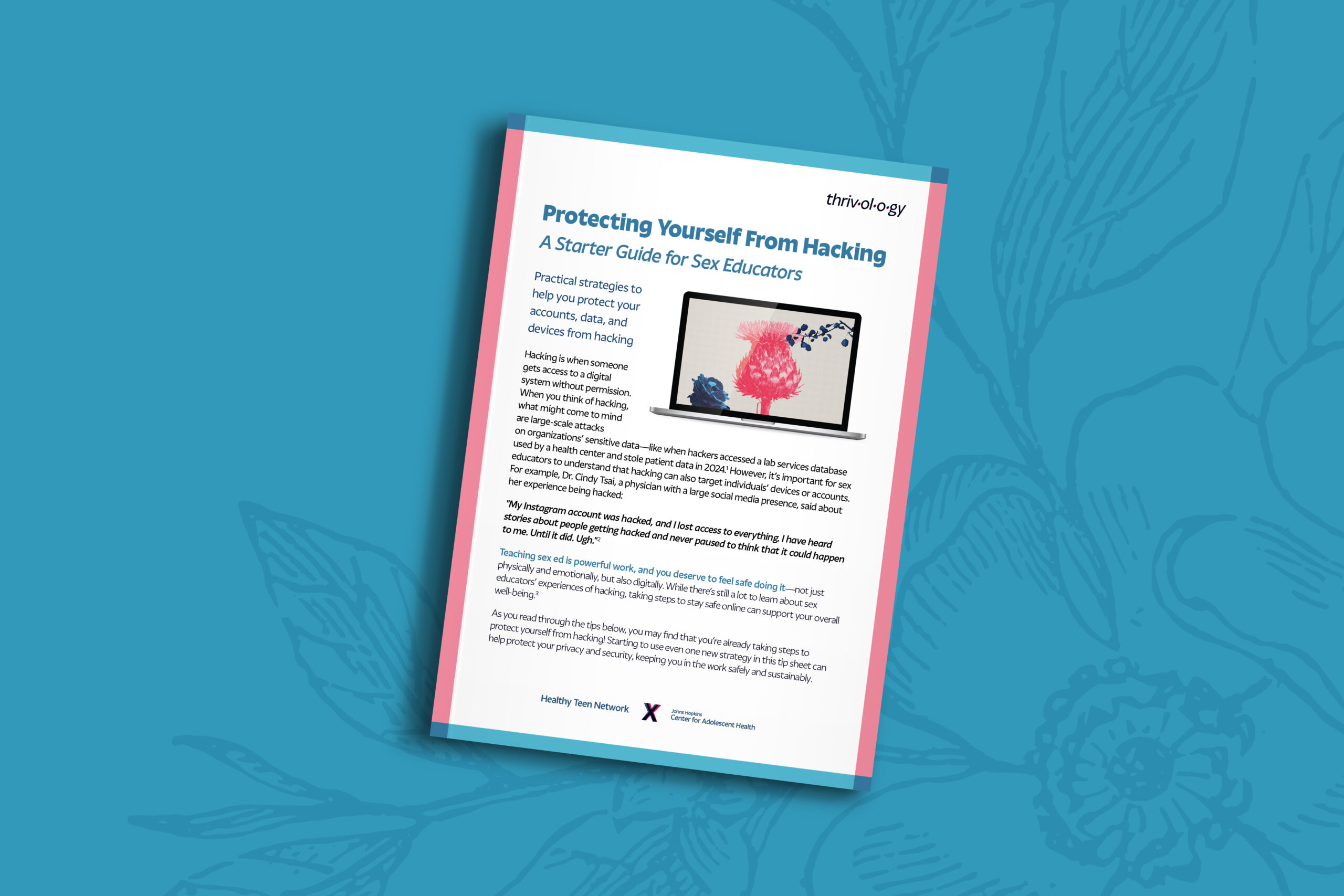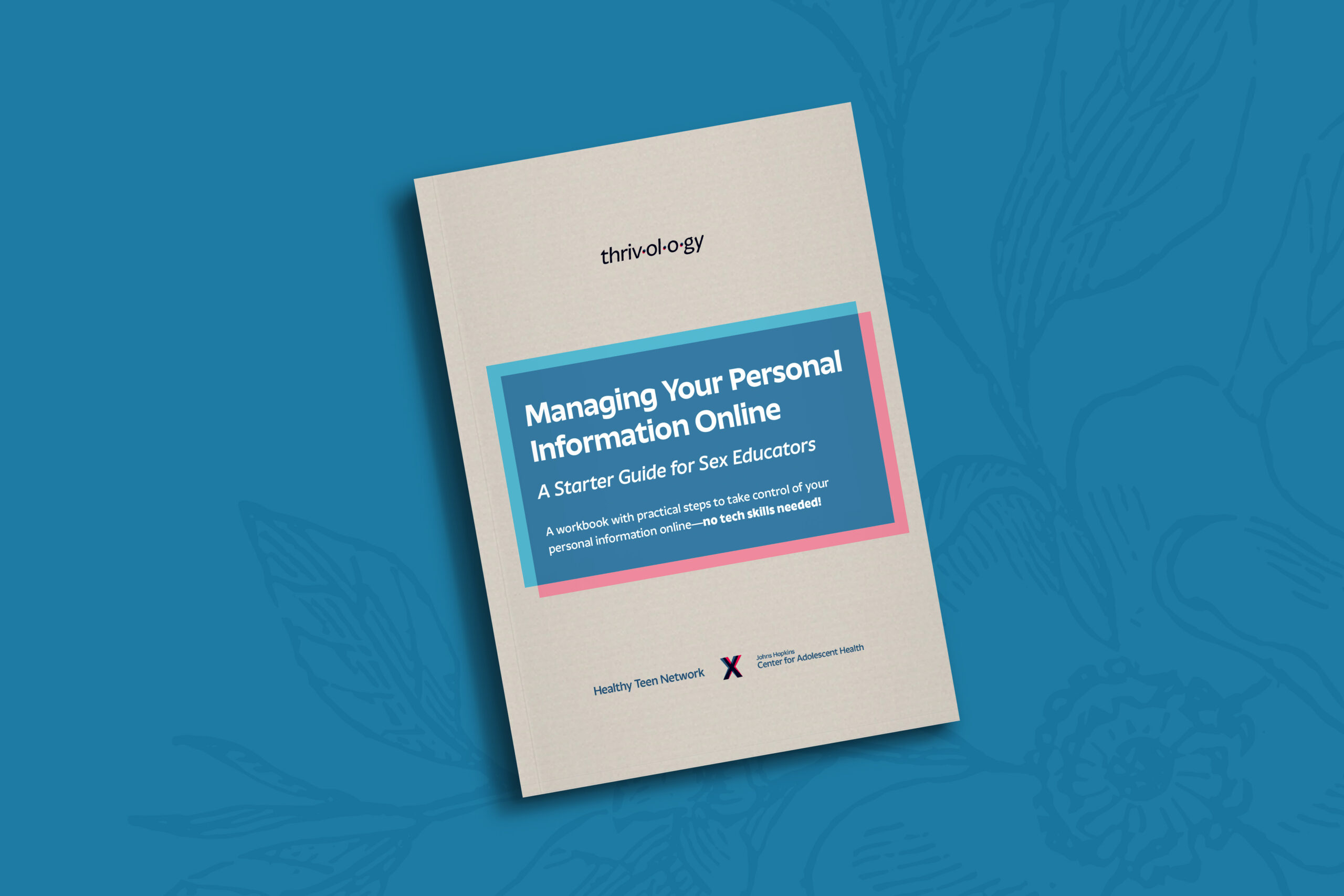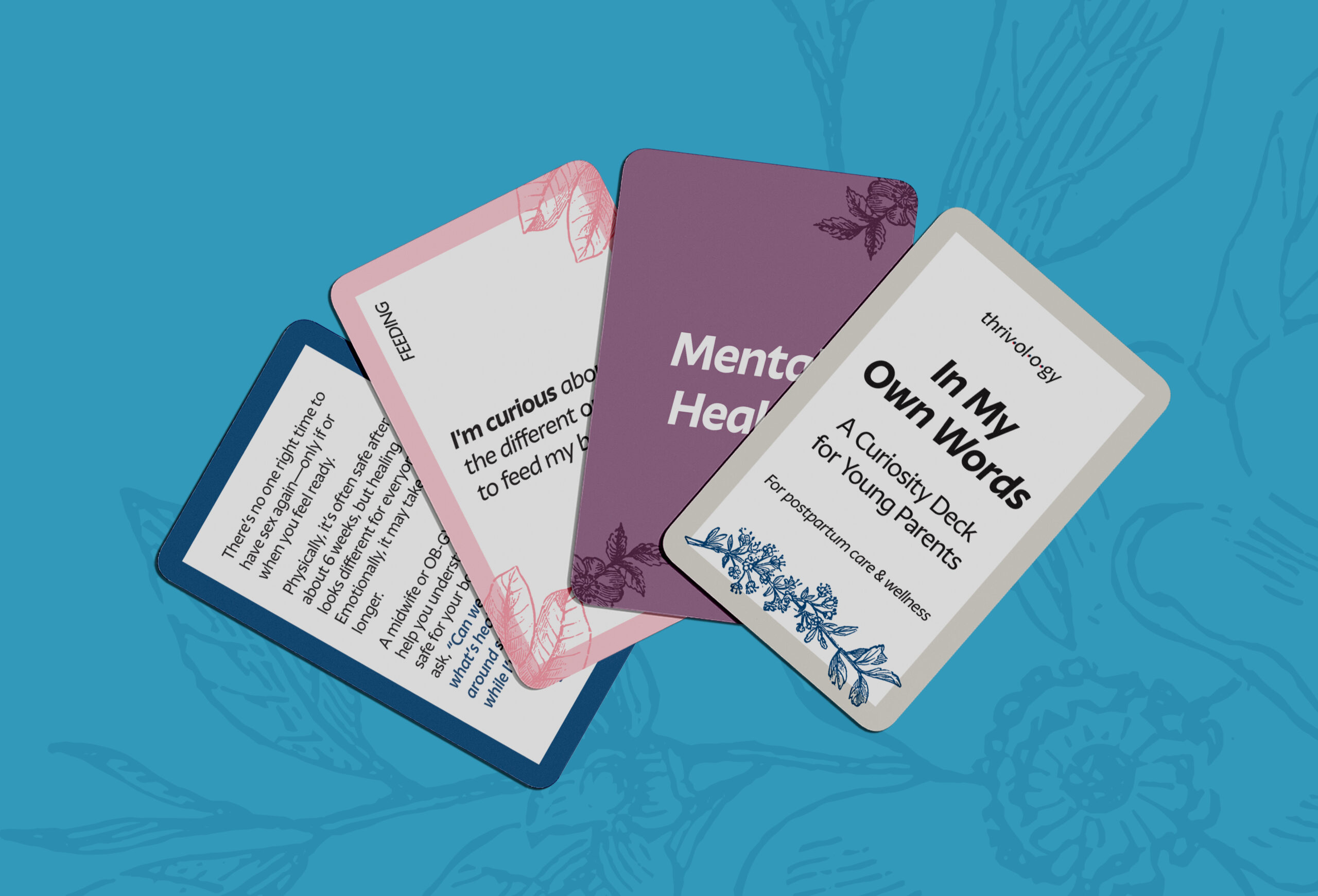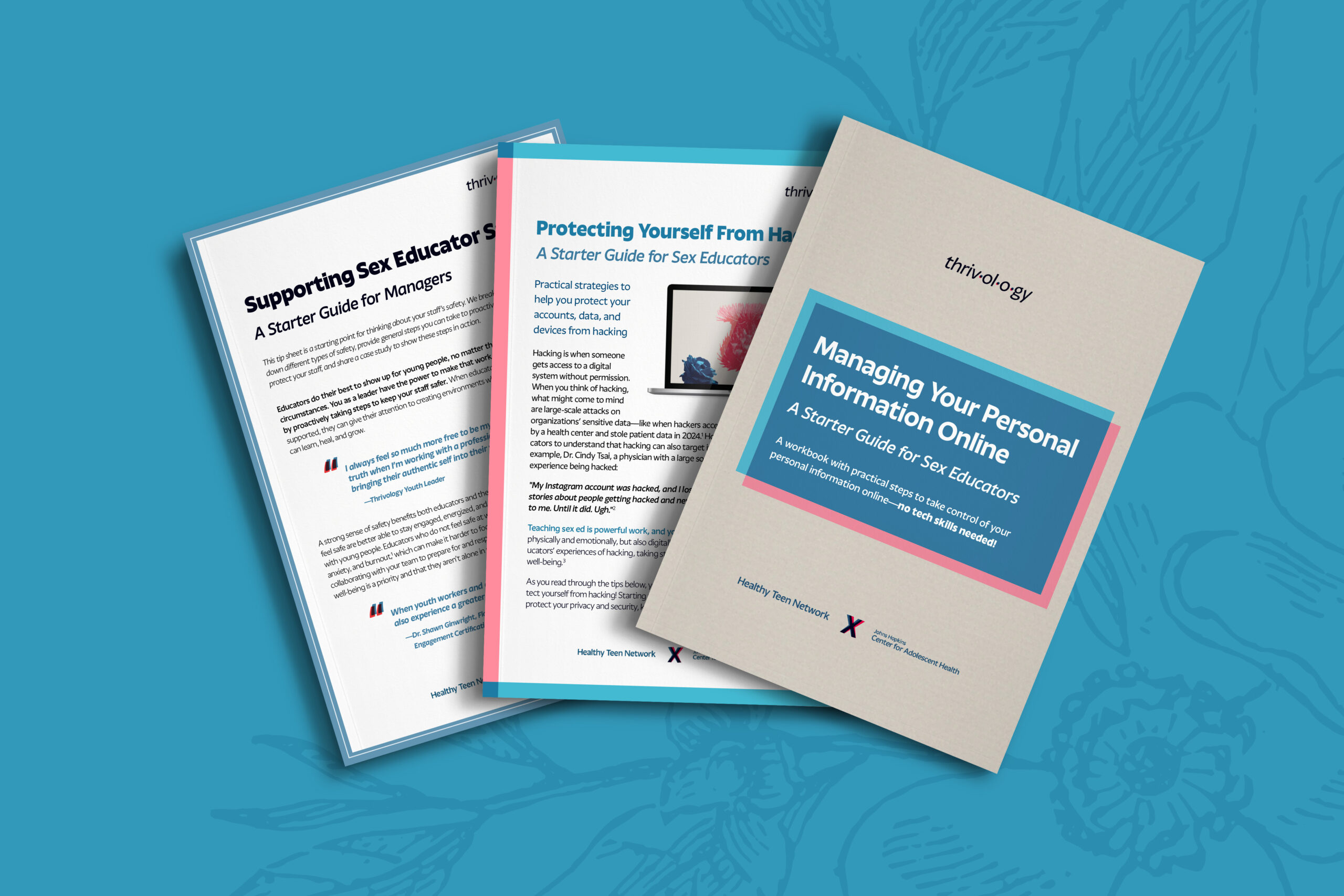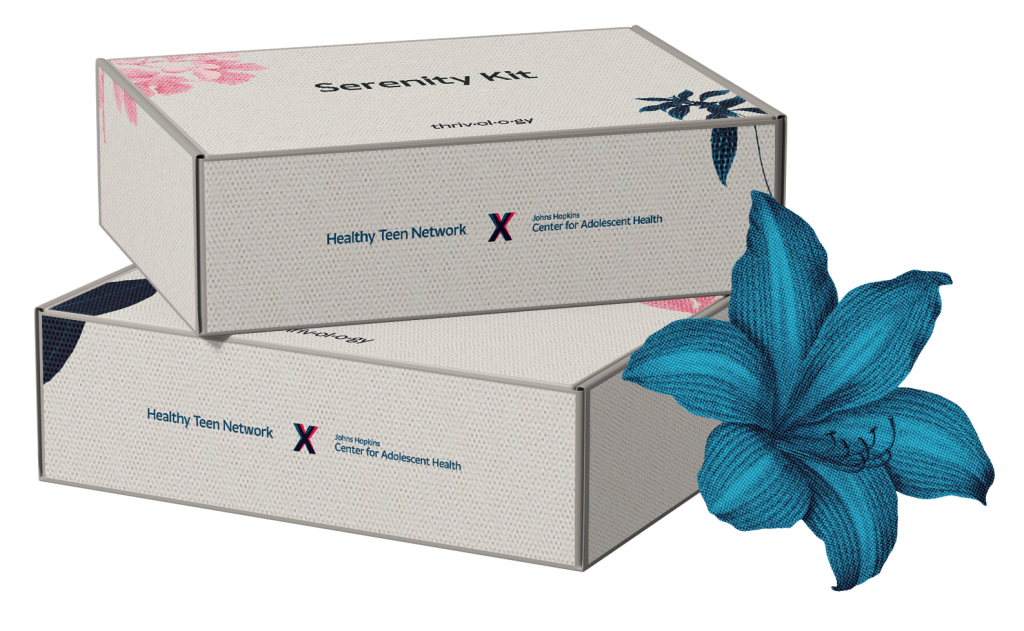
Serenity Kit

A thoughtfully curated kit for youth-supporting professionals to promote self-care, healing, and a
sense of safety
An experience for the senses
Within every Serenity Kit is an experience for the senses: a sight, a sound, a texture, a scent, and a taste—perfect for those super busy, high-stress days.
Sensory-based interventions like the Serenity Kit support healing and trauma-informed care. Research shows these interventions help youth-supporting professionals process and regulate their emotions, create a safe and regulated environments, and reduce the risk of re-traumatization for young people.
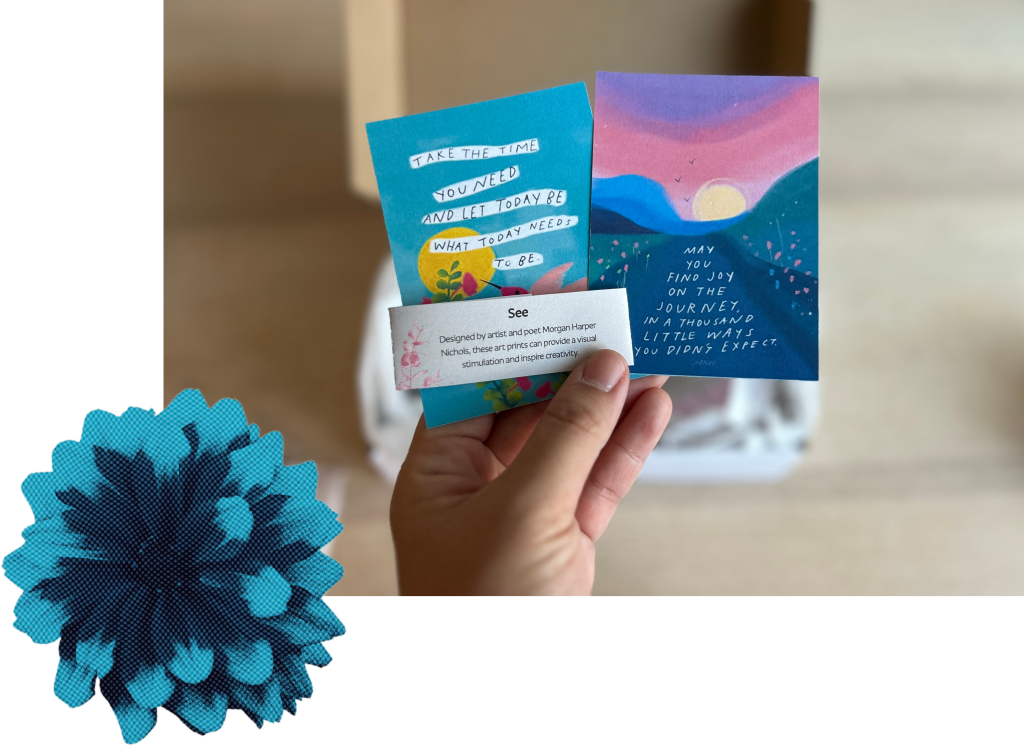
Dr. Shawn Ginwright, pioneer of the Healing-Centered Engagement framework
Get your Serenity Kit!
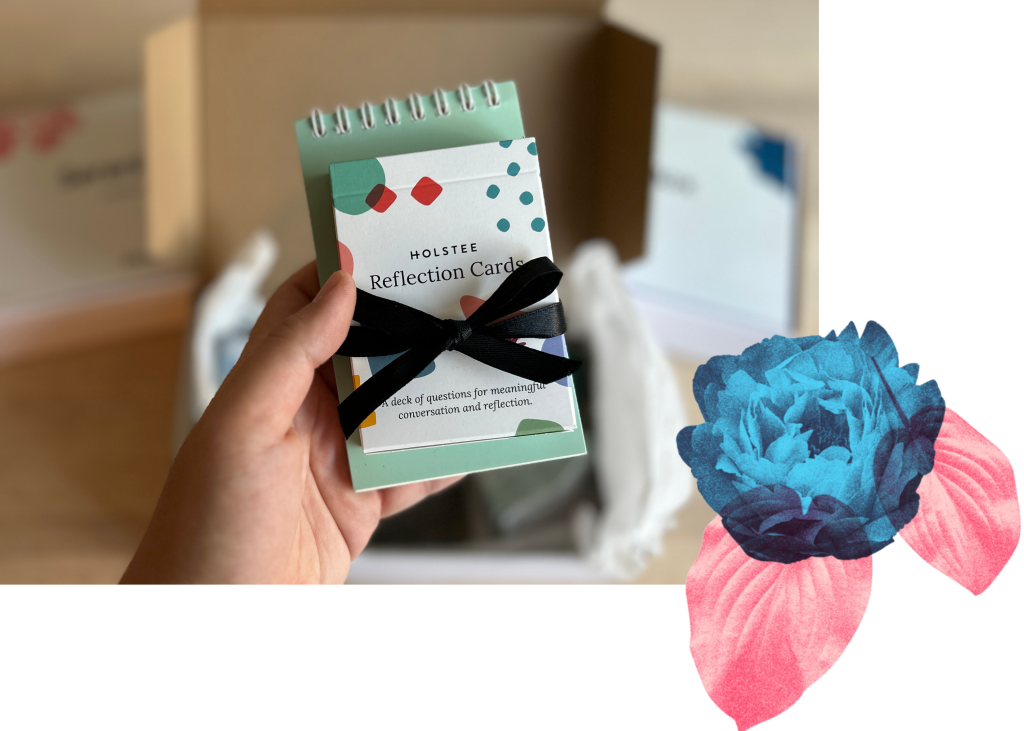
Pick one up!
Youth-supporting professionals may pick up free, ready-made Serenity Kits at Thrivology exhibits nationwide. Look for us at:
• National Sex Ed Conference, February 23-25, 2026, in Baltimore, MD
More Thrivology exhibits to be announced.
Serenity Kits were previously made available at the Maryland Adolescent Health Conference, Adolescent Pregnancy Prevention Grantee Conference, Center for Sex Ed National Sex Ed Conference, Teen Pregnancy Prevention Program Grantee Orientation, and the Runaway and Homeless Youth National Grantee Training.
Patricia Natalie, Lead Designer

Create your own!
Healing and self-care are deeply personal journeys, and we all have different definitions of and approaches to healing. This guide will help you create your own Serenity Kit.
Thrivology Tip: Kit-building can also be a delightful bonding activity with coworkers, friends, or family members.
Serenity Kit-curious? Thrivology is here to help.
Better together
Liking your Serenity Kit? Stay in touch to help shape the future of this Thrivology resource.
Disclaimer
We understand that workplace trauma and burnout arecomplex issues that cannot be fully addressed with a single resource. The Serenity Kit is not intended to be a comprehensive solution to trauma but rather a supportive tool to help professionals unwind, destress, and de-stimulate. While it can provide moments of relief and support, it is not a substitute for comprehensive trauma care and mental health support.
We also recognize that taking care of yourself looks different for everyone. The Serenity Kit is not meant to prescribe or simplify what self-care should be. Instead, it aims to create moments of peace and calm, reminding you that self-care is personal and can be defined–and reclaimed–in any way you choose.
Suggested Citations and Acknowledgments
Serenity Kit:
Natalie, P., Garrido, M., Sufrinko, N., Desiderio, G., & Lloyd, L. (2024). Serenity kit [Tool Kit]. Healthy Teen Network. www.HealthyTeenNetwork.org/thrivology/resources/serenity-kit
Acknowledgment: We also gratefully acknowledge the contributions of the following individuals and organizations to this resource. Their ideas, discussions, and generosity played a crucial role in the conceptualization and development of our work: Nicole Bennett, Ryan Mateo Sharnbroich, Beth Marshall, Monica Faulkner, Kalil Sykes, and ARTifact.
Build-Your-Own Serenity Kit Guide:
Natalie, P., Garrido, M., Desiderio, G., Devoto, B., Bennett, N., & Gupta, M. (2024). Serenity kit DIY guide [Guide]. Healthy Teen Network. www.HealthyTeenNetwork.org/thrivology/resources/serenity-kit
Acknowledgment: We also gratefully acknowledge the contributions of the following individuals to this resource. Their insights, ideas, reviews, and thoughtful discussions played a crucial role in the conceptualization and development of our work: Janet Max, Ryan Mateo Sharnbroich, Marlen Ramirez, Lauren Lapointe, Cody Van Felden, Cody Ragonese, and Kelsey Stewart.
Sources
Scanlan, J. N., & Novak, T. (2015). Sensory approaches in mental health: A scoping review. Australian Occupational Therapy Journal, 62(5), 277-285.
Shapiro, S. L., Brown, K. W., & Biegel, G. M. (2007). Teaching self-care to caregivers: Effects of mindfulness-based stress reduction on the mental health of therapists in training. Training and Education in Professional Psychology, 1(2), 105–115. https://doi.org/10.1037/1931-3918.1.2.105
Moore, K. (2016). Following the evidence: Sensory approaches in mental
health. https://www.sensoryconnectionprogram.com/pdf/follow_the_evidence.pdf
This project is supported by the Office of Population Affairs (OPA) of the U.S. Department of Health and Human Services (HHS) as part of a financial assistance award (1 PHEPA000006-01) totaling $1,063,776.35 with 100 percent funded by OPA/OASH/HHS. The contents are those of the author(s) and do not necessarily represent the official views of, nor an endorsement, by OPA/OASH/HHS, or the U.S. Government. For more information, please visit opa.hhs.gov.









